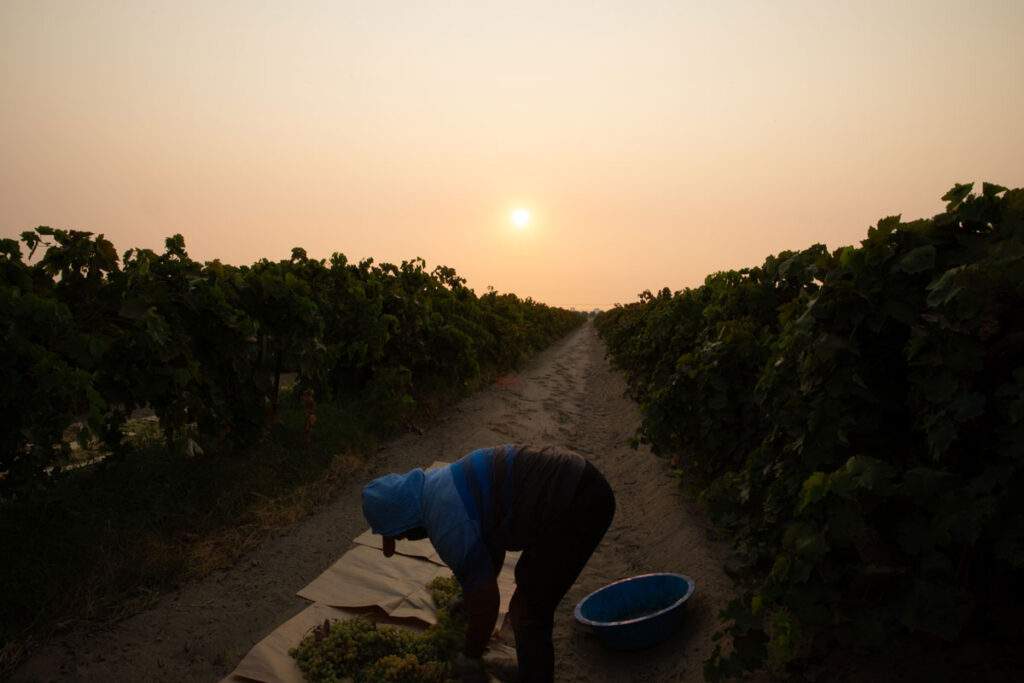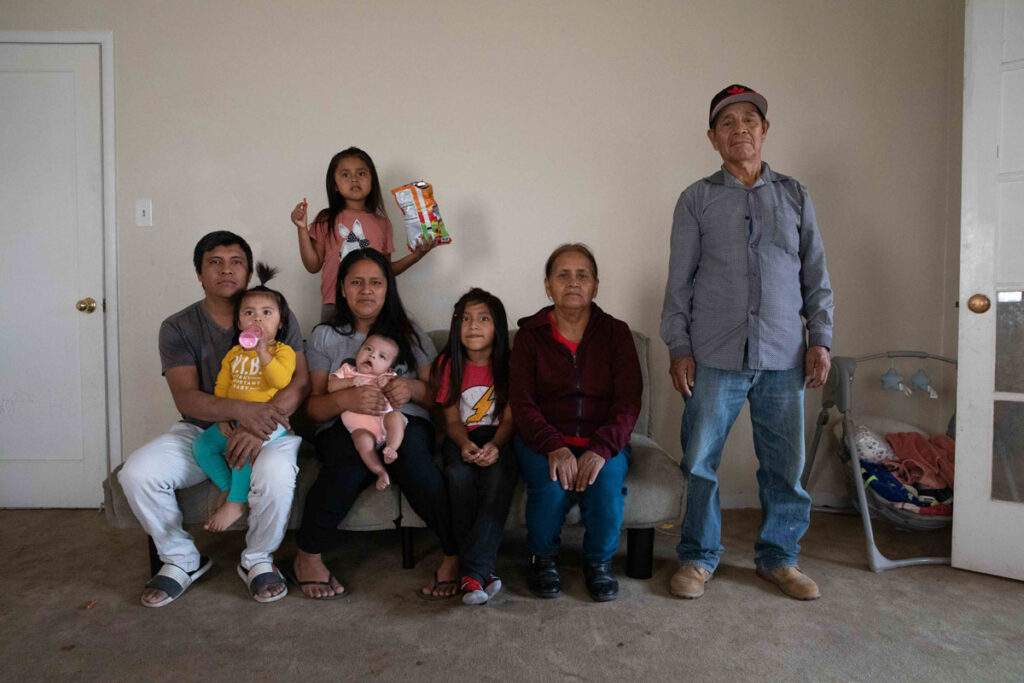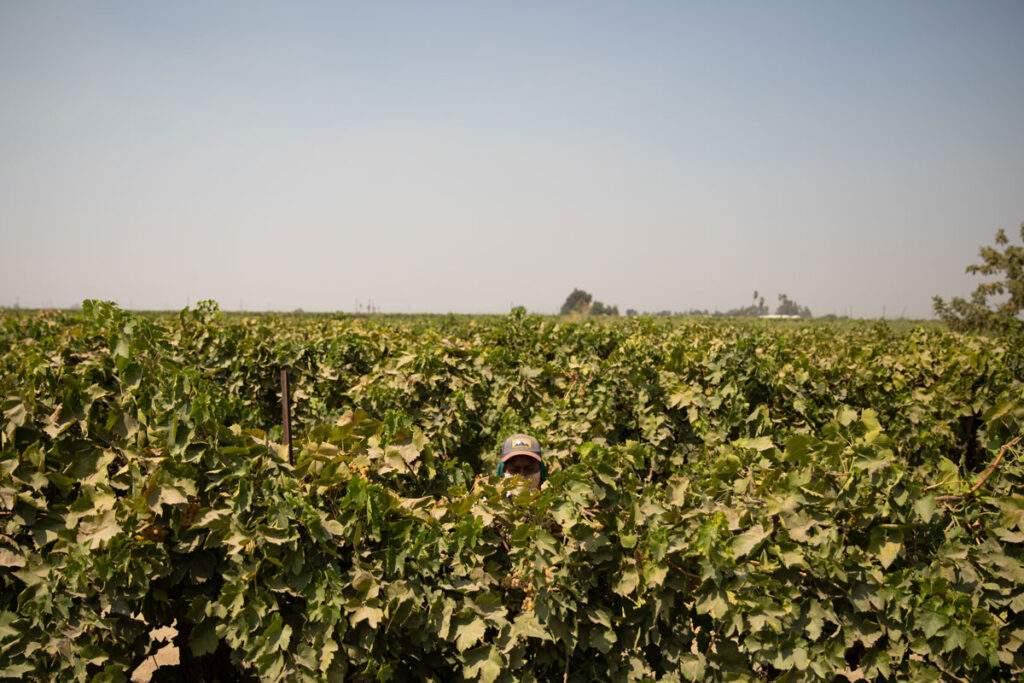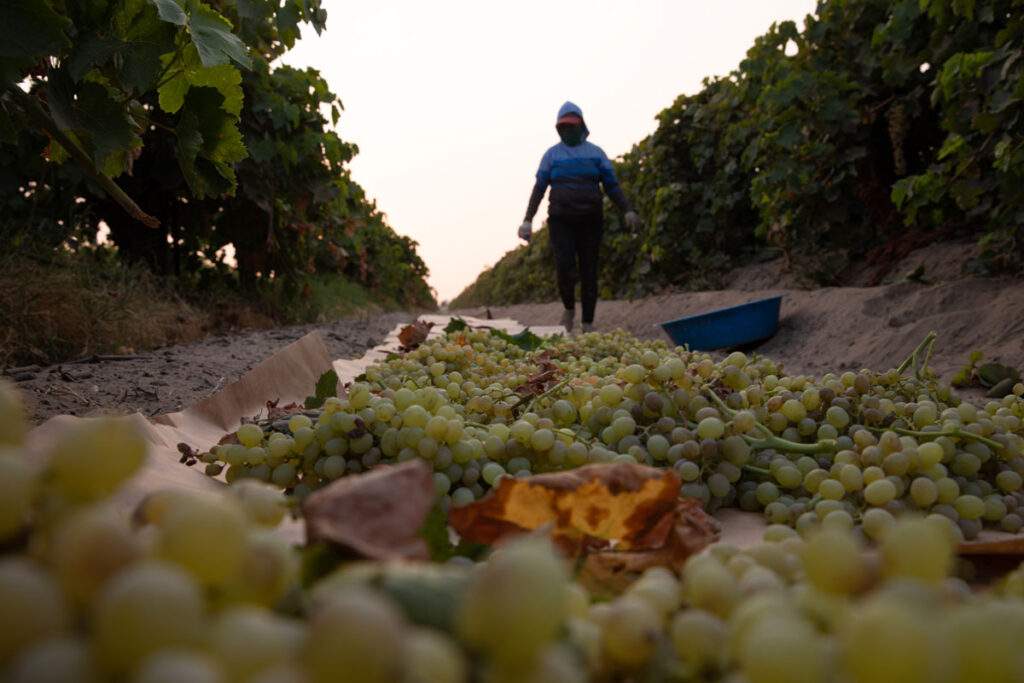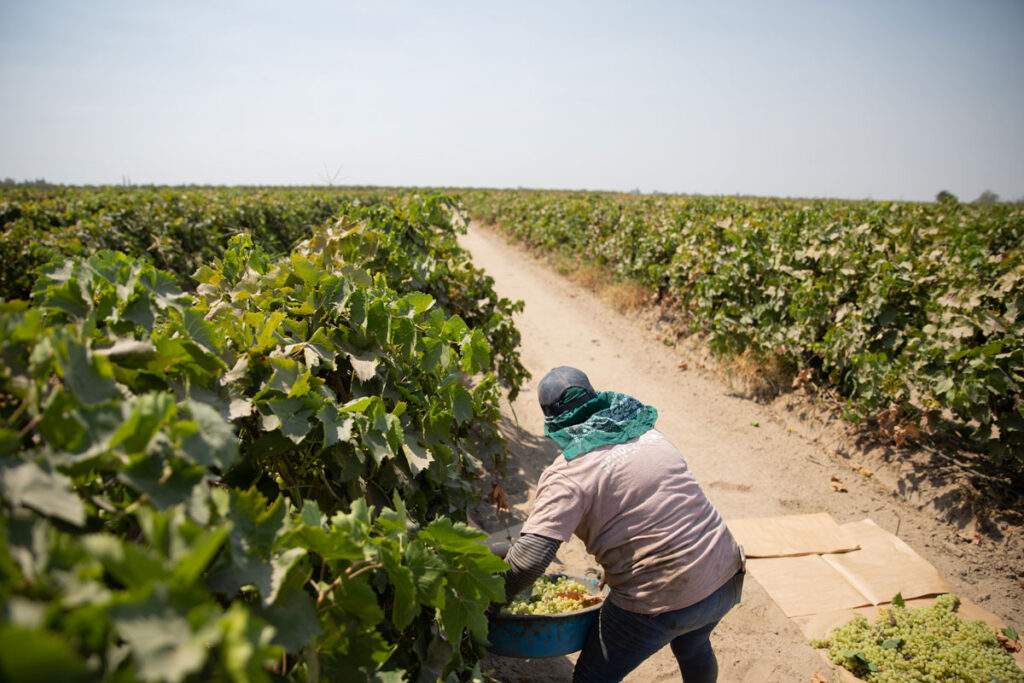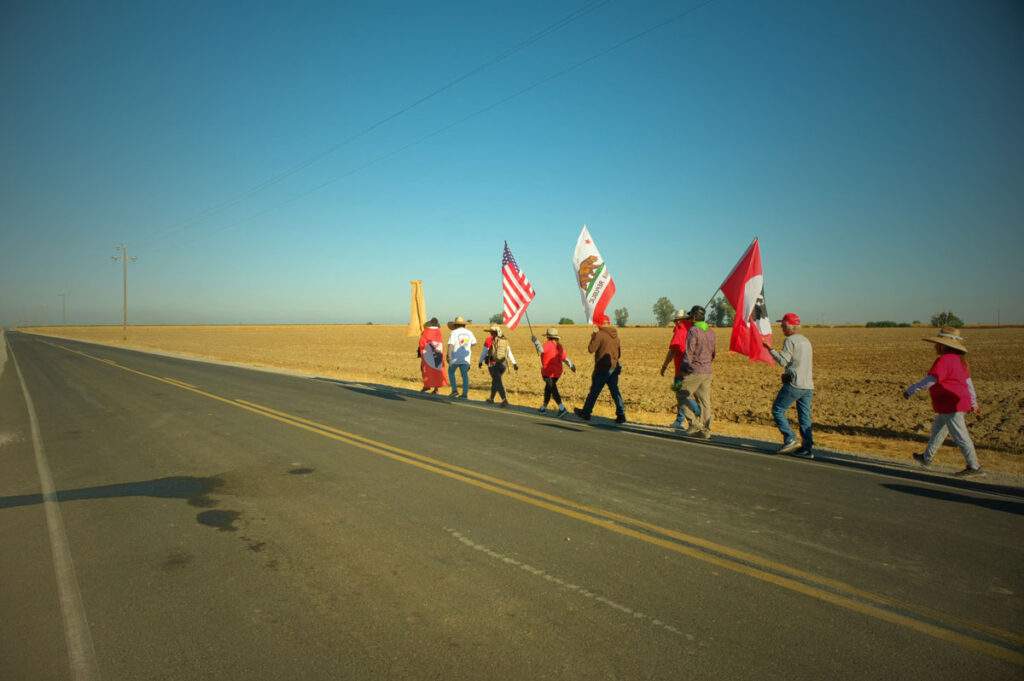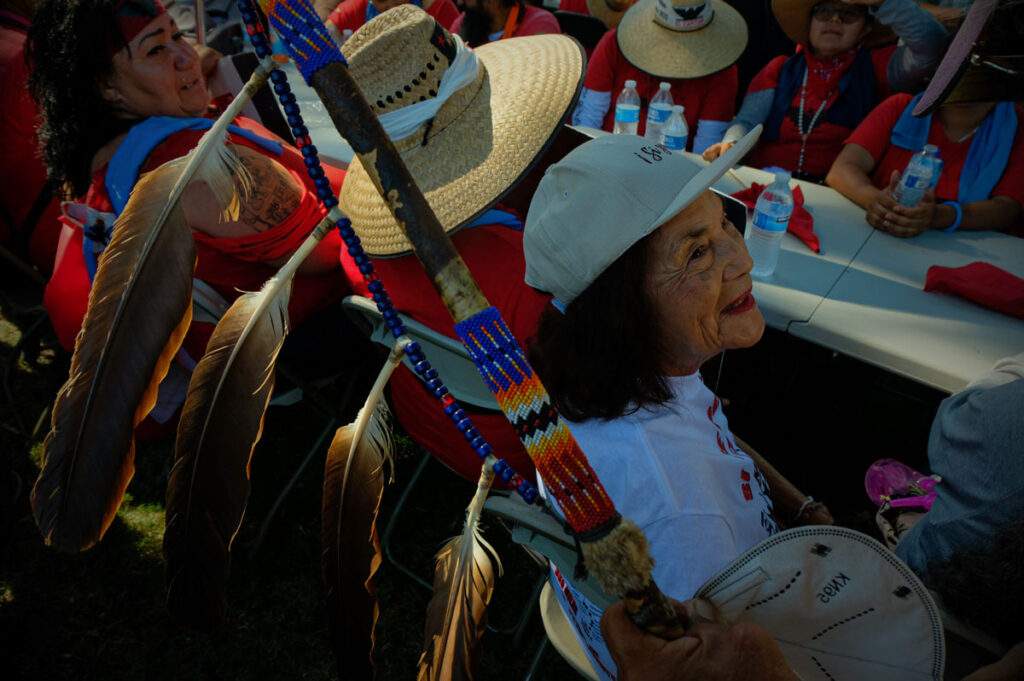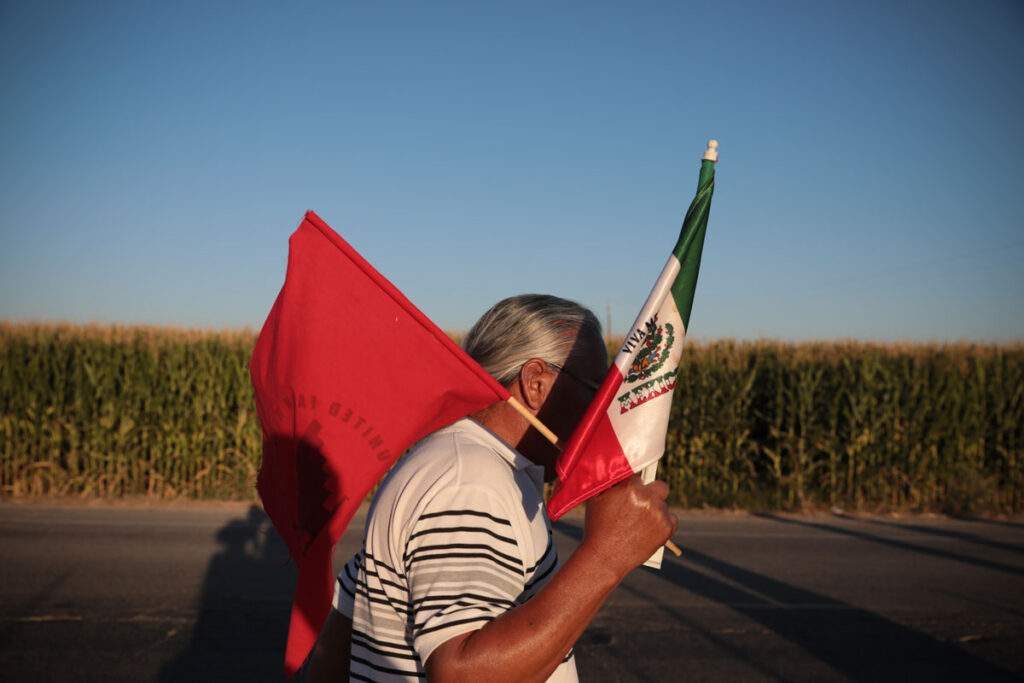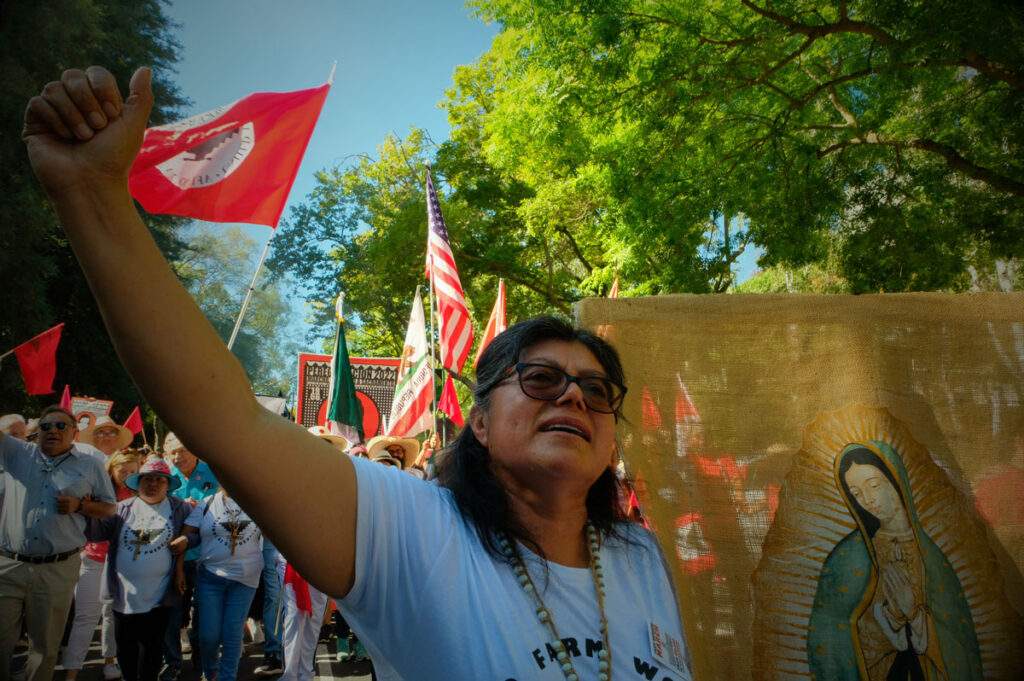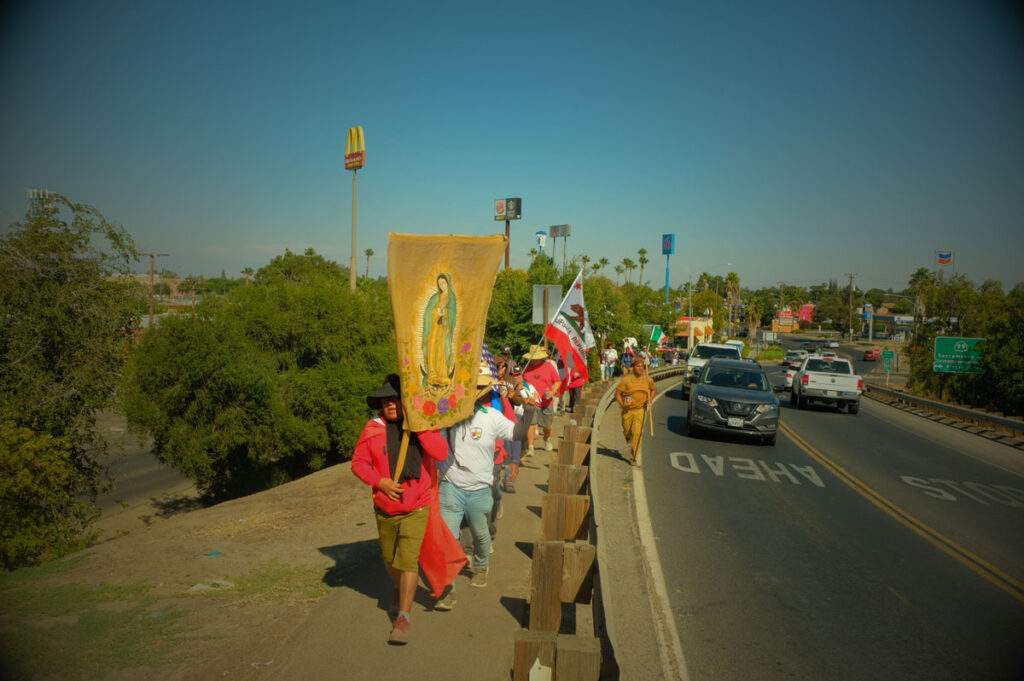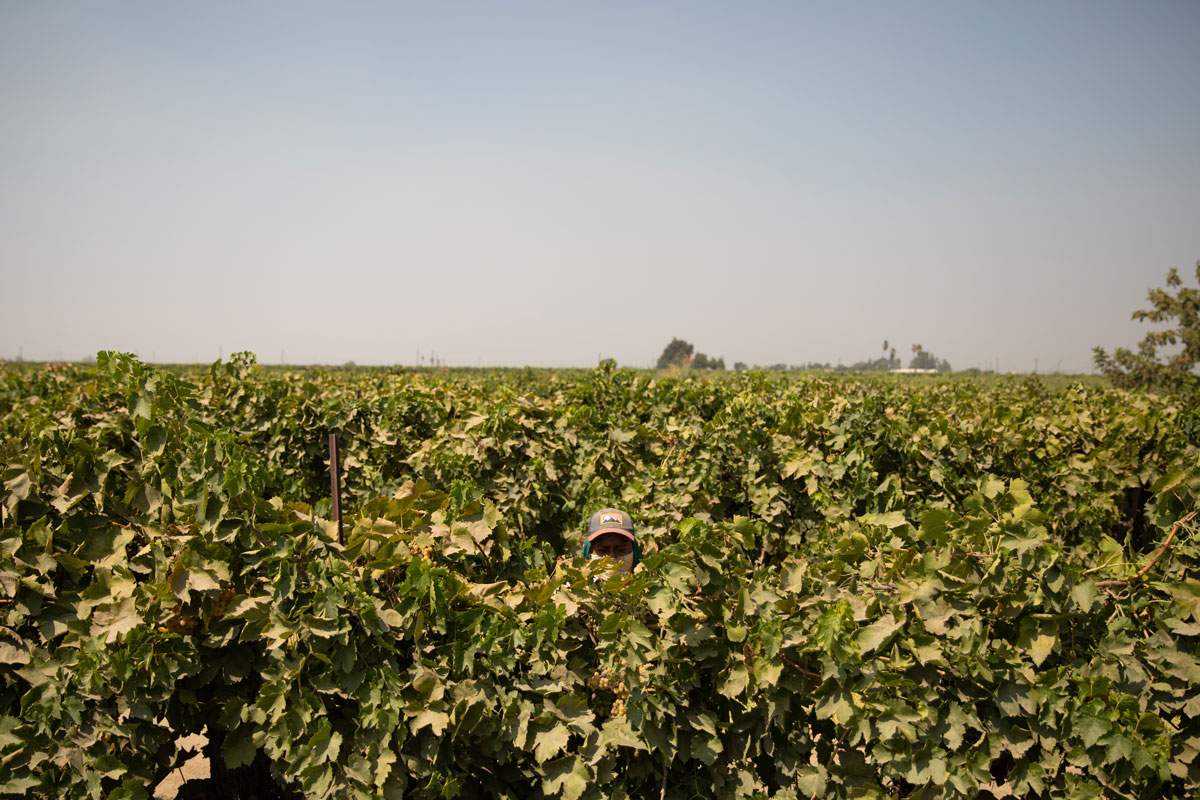
Artist Statement
United Farm Workers
On Aug. 3, 2022, the United Farm Workers (UFW) began a 24-day “peregrinación,” walking from Delano, California, to the state Capitol in Sacramento. The marchers embarked on a 335-mile route in the blazing summer heat, retracing the route of the legendary 1966 “March to Sacramento,” led by the UFW’s iconic founders, Cesar Chavez and Dolores Huerta. The organization and its allies are again making the grueling journey, this time to urge California Gov. Gavin Newsom to sign the California Agricultural Labor Relations Voting Choice Act (Assembly Bill 2183). The bill would give farmworkers more voting rights and provide protection for those voting in union elections.
This project was very personal to me. My father was a farmworker when he first arrived in California from Mexico. I was raised in Tulare and as a child, I did not fully comprehend the importance of my region comprised of farmworkers. As a kid, in the San Joaquin Valley, we all know or have family members that work in the fields. I would hear the name Cesar Chavez and UFW but not until high school did I learn I was living just 30 minutes north of Delano, the headquarters of Chavez’s movement in the 60s. I would hear so many stories from our farmworker community that for us were often our neighbors. I had so many questions that were never fully answered. In some way, this march was not only full of lucha but it was subconsciously answering a lot of my childhood questions about the injustices in my community.
Silvia’s Story
Thousands of Indigenous migrants toil on California farms, cut off from mainstream health care by language & cultural barriers. Overlooked yet considered essential, indigenous farmworkers not only lack access to healthcare but experience discrimination more often than other labor workers. Silvia Garcia is one out of 165,000 migrant indigenous farmworkers in California. While pregnant during the pandemic, she became an activist for her community going door to door, educating her community.
The world was truly affected during the uncertain times of the pandemic. Much of our workforce was labeled essential but not all essential workers were provided with equal resources. Indigenous migrant farmworkers suffered through extreme disparities, specifically in lack of healthcare, while continuing to pick our crops for all to enjoy in the comfort of our homes. I wanted to highlight farmworkers but I wanted to highlight communities within that we often do not hear about. Being from Tulare, I was not aware of the largely indigenous population working in agriculture. I was moved by the stories and history of this community. It expanded my awareness of my own backyard.
Gallery
About
Zaydee Sanchez is a Mexican American visual storyteller, documentary photographer, and writer from Tulare, California, in the San Joaquin Valley. She seeks to highlight underreported communities and overlooked narratives, with a focus on labor workers, gender, and displacement. Zaydee is an International Women’s Media Foundation grantee and both a USC Annenberg Center for Health Journalism and Economic Hardship Reporting Project Fellow.Her work has been published in Al Jazeera, National Geographic, NPR, High Country News and more. She currently resides in Los Angeles. zaydeesanchez.com

